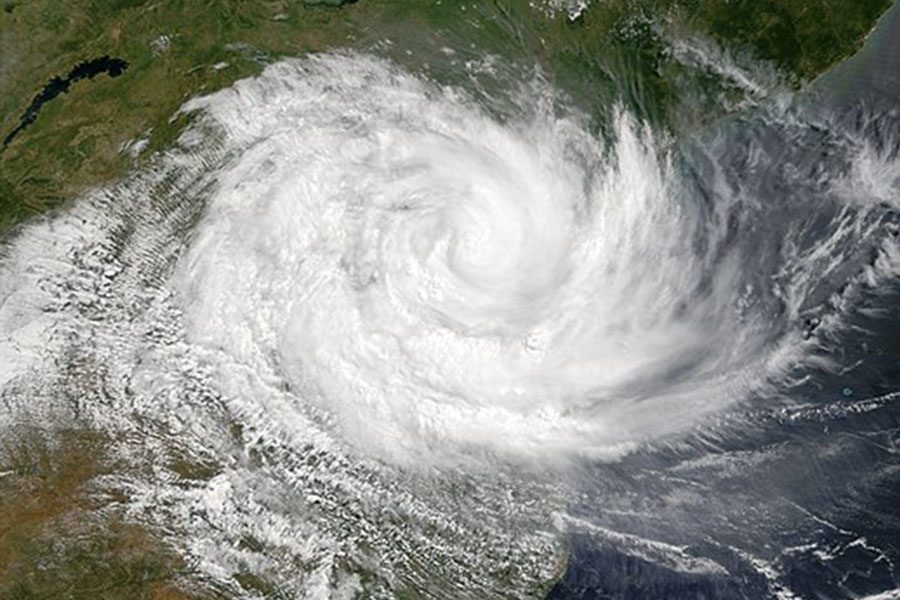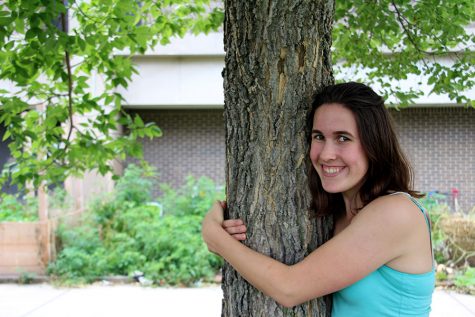The climate crisis is a human rights crisis
Cyclone Idai hit the eastern coast of Africa on March 14, killing hundreds of people in Mozambique, Malawi, and Zimbabwe. According to the New York Times, aid agencies say it’s the worst disaster to hit the area in decades. Disasters like Cyclone Idai will become more and more common as the climate crisis worsens. This human cost, paid by the most marginalized communities, means climate chagne is a human rights issue.
April 24, 2019
Hurricane Maria, which hit Puerto Rico in September 2017, was the worst natural disaster to date in the Caribbean Islands. It killed over 3,000 people and total losses from the hurricane were estimated to be $91.61 billion. Puerto Rico is not a wealthy country and struggled to recover, yet leaders with power and privilege in the U.S. ignored the crisis that occurred there.
On March 14, 2019, a cyclone hit Mozambique that killed 847 people, displaced tens of thousands, and caused mass destruction in cities that had already attempted to prepare for the predicted increased disasters that come from climate change. This has also not received the attention that it needs from leaders in the U.S.
These are all examples of increasing environmental disaster that will come as the global climate crisis worsens. Because of increasing human-caused greenhouse gas emissions, average temperatures are rising along with a slew of terrifying effects.
Imagine hurricanes, floods, and wildfires happening so often that they are the norm, so that no one can take safety for granted. Imagine land on the coasts crumbling as sea levels rise, destroying homes, streets, schools, and lives. Imagine drought so intense that communities can’t access water for long periods of time and no one can grow any crops. Imagine water sources so contaminated that communities like Flint are everywhere and the price of clean water skyrockets. Imagine crop-growing seasons shortening so that agriculture and food sources are at risk.
The climate crisis is not just about the statistics. It’s not just about the parts per million of carbon in the atmosphere. It’s not just about using electric cars, being vegan, or recycling. Yes, those things are important, but this is about HUMAN LIVES.
Most importantly, it exacerbates almost every societal problem that we face today — racism, colonialism, wealth inequality, and more. As seen through climate impacts already occurring, this crisis will most heavily impact formerly colonized countries, communities of color, indigenous groups, low-income communities, and those with the least resources and power to protect themselves.
The way our society currently works, there is a huge power imbalance between the rich and poor, white and non-white, those who benefit from the system and those who are oppressed by it. With increasing costs of rebuilding destroyed infrastructure, accessing clean water and food, and providing healthcare and relief for those that desperately need it, it’s very likely that marginalized communities will be left behind and further exploited.
Now, imagine that in the ensuing environmental chaos, important issues like education reform, immigration, and gun violence won’t be priorities anymore. The prospect of the “American Dream” will be nonexistent. Lack of resources and opportunity for those most oppressed will cause an increase in violence, homelessness, drug abuse, sexual assault and worse. For those most powerful, greed, patriarchal domination, and white supremacy will be most prominent.
This future could very well be the one we will face, and we have to deal with that. First of all, we have to see it for how it is and stop ignoring it. We have to talk about it more, prioritize solutions and stop playing the political games that create excuses for not doing enough.
Second, we have to stop ignoring those that are most impacted by climate change. Many marginalized communities are already creating their own local solutions and strategies of resilience. If we listen to them and let them lead, we can learn from them, while at the same time working to eliminate the systems of oppression that got them to the bottom in the first place.
Finally, we have to realize that the climate crisis intersects with nearly every political and human rights issue. It intersects with every career field and area of study. To do the work necessary to prevent the worst of climate disaster and help us get through the effects we will inevitably face, we need all doctors, lawyers, engineers, politicians, economists, teachers, organizers, business owners, mental health professionals, and more to play a role. Everyone who has the privilege to do so needs to see it as their responsibility to do their part in not only making individual changes, but changing the system that got us here in the first place.






